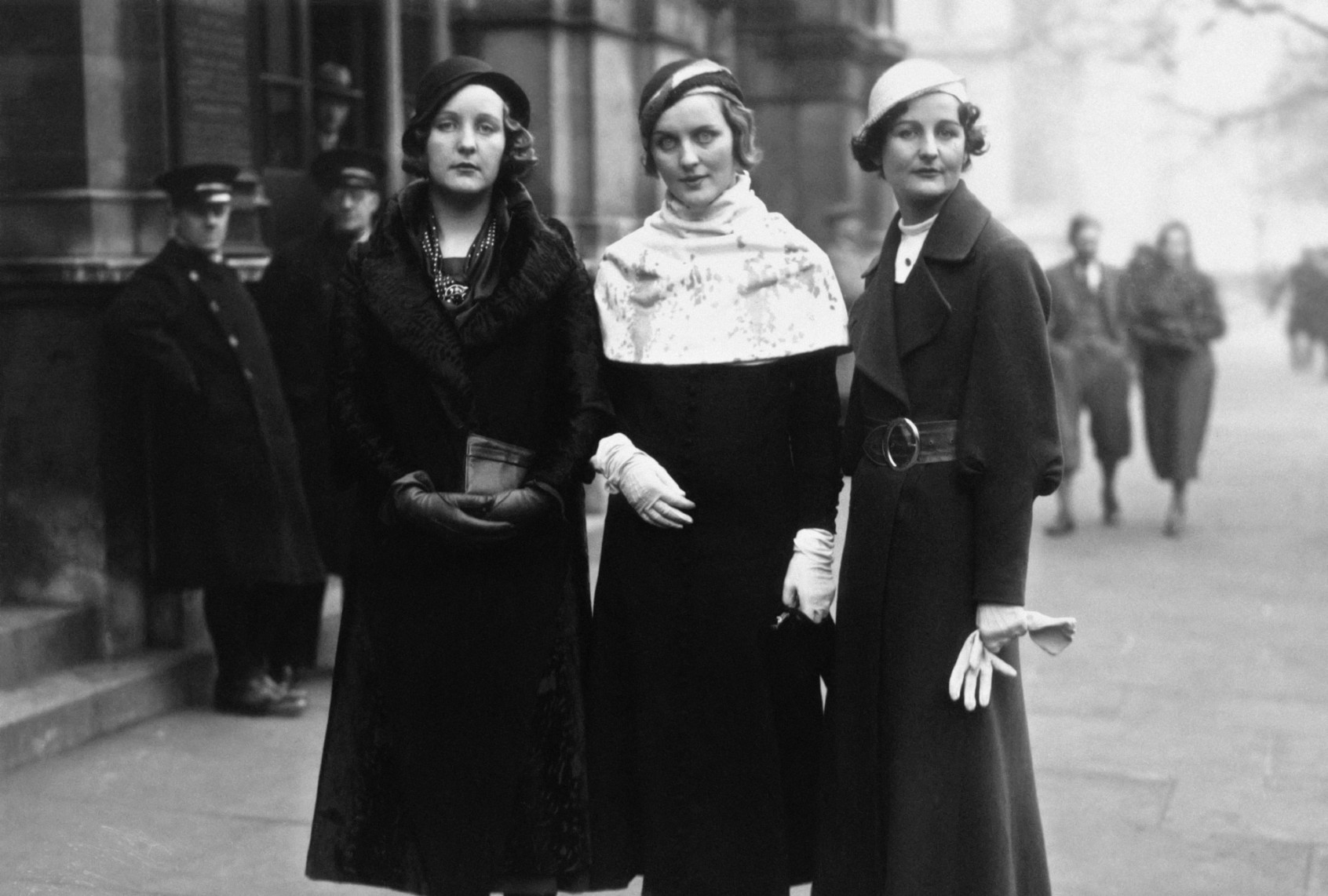The recently released series “Outrageous,” available on BritBox, has sparked significant controversy for its portrayal of the Mitford sisters, particularly focusing on their connections to fascism. Set in the 1930s, the six-episode adaptation draws from Mary S. Lovell’s biography “The Sisters” and presents a lavish view of the sisters’ lives while downplaying their troubling political affiliations. Critics argue that the series glamorizes figures like Diana and Unity Mitford, who were vocal supporters of fascism during their time.
The Mitford sisters, renowned for their privileged upbringing and eccentric personalities, have often been likened to modern celebrity families. They were the daughters of a baron and cousins to Winston Churchill, gaining fame in the UK society scene before establishing their individual careers. Eldest sister Nancy became a celebrated novelist, while Jessica, known as the family’s “red sheep,” turned to communism and investigative writing. Conversely, Diana and Unity became infamous for their admiration of fascism, particularly their association with Oswald Mosley, the leader of the British Union of Fascists.
Controversial Portrayal of Fascism
“Outrageous” features a cast of well-known actors, including James Purefoy and Anna Chancellor, who portray the Mitford parents, Lord and Lady Redesdale. The show focuses heavily on Diana, who leaves her husband for Mosley, and Unity, who idolizes Adolf Hitler. Critics note that the series presents their extremist views as mere quirks of a dysfunctional family, rather than addressing the severity of their political beliefs.
Unity’s diaries, recently discovered, reveal her obsessive interactions with Hitler, and her fixation is depicted with a lighthearted tone in the series. Although the creators may not endorse the sisters’ ideologies, the whimsical presentation raises concerns in a contemporary context where authoritarianism is on the rise in various parts of the world.
Cultural Impact and Reception
While the Mitford sisters have been the subject of numerous books and adaptations, including Jessica Fellowes’ “Mitford Murders” series and biographical works, “Outrageous” has drawn criticism for its timing and thematic choices. Critics argue that the show’s light-hearted portrayal of fascism is particularly troubling given the current global political climate. Questions about the appropriateness of romanticizing such historical figures echo throughout the discourse surrounding the series.
The executive producer’s familial ties to Oswald Mosley have also raised eyebrows, leading some to question the integrity of the portrayal. Matthew Mosley has stated that his involvement is coincidental; however, critics suggest that the narrative may reflect a reluctance to confront the darker aspects of his great-grandfather’s legacy.
Overall, “Outrageous” offers a glimpse into the lives of the Mitford sisters but does so at a time when discussions surrounding fascism and authoritarianism are increasingly pertinent. Viewers are left to grapple with the implications of celebrating a family whose members made such troubling choices, prompting a broader conversation about the responsibilities of media in depicting controversial historical figures.
